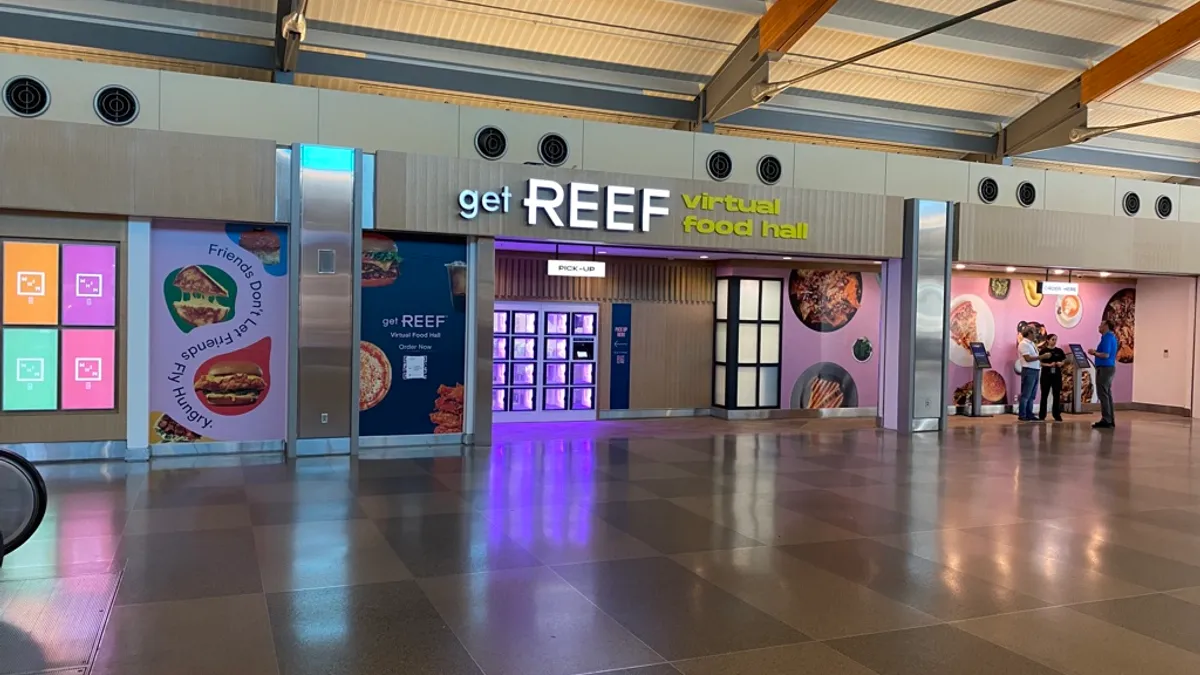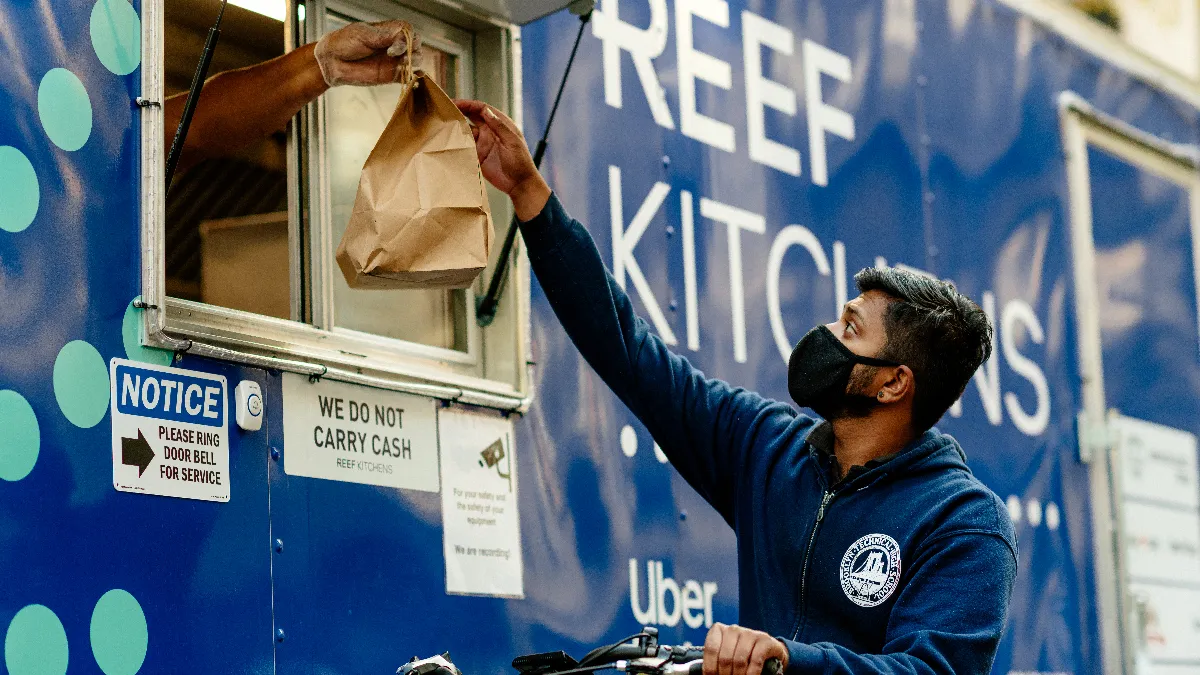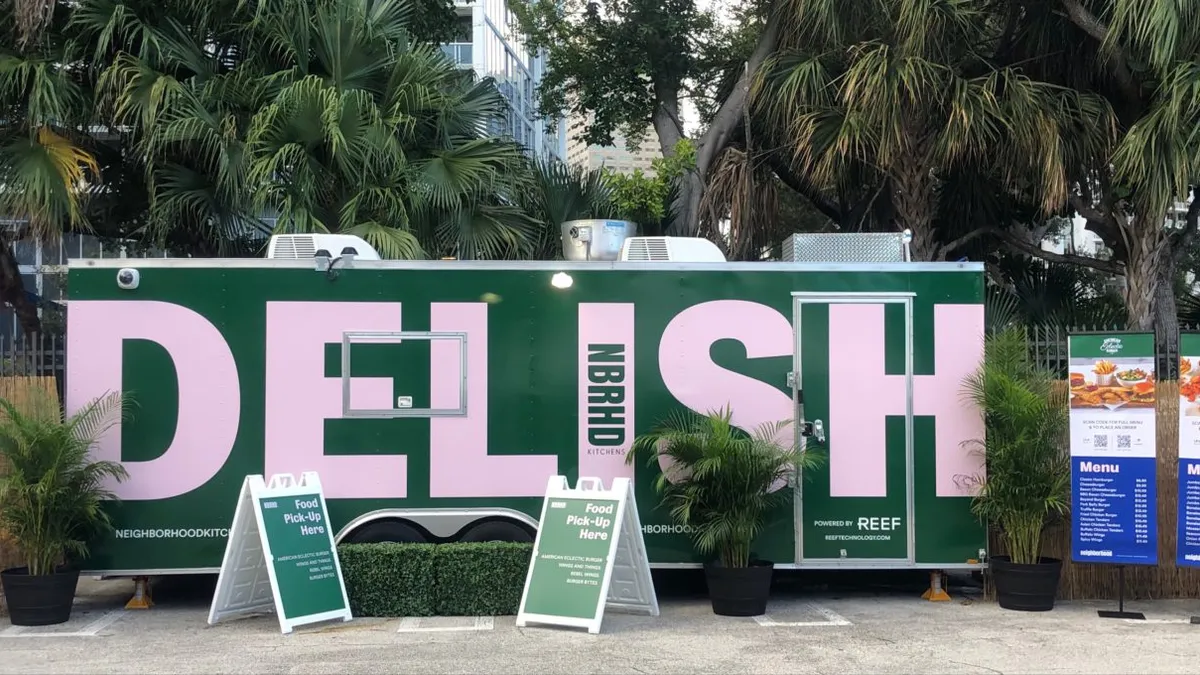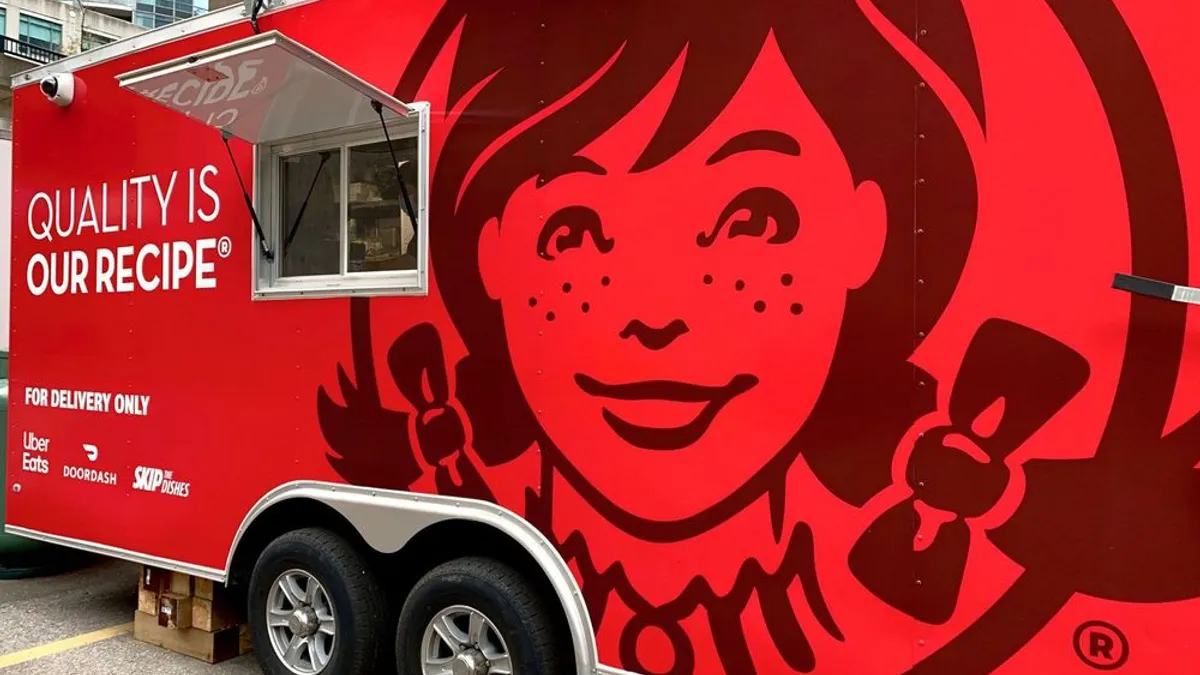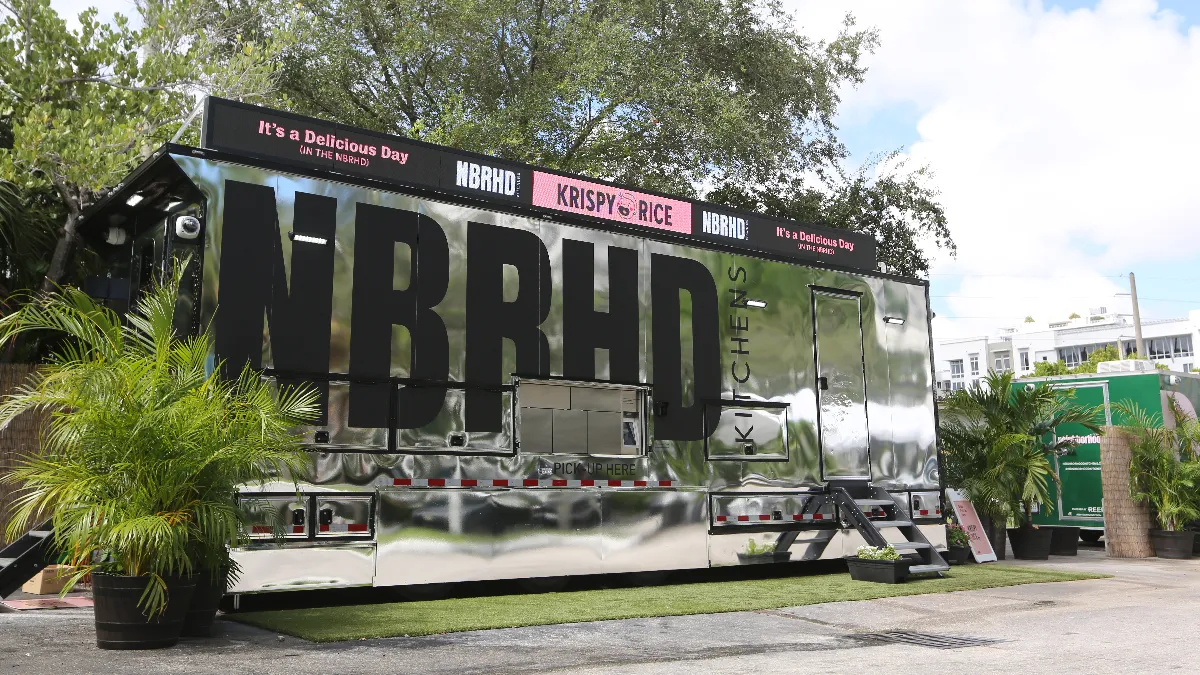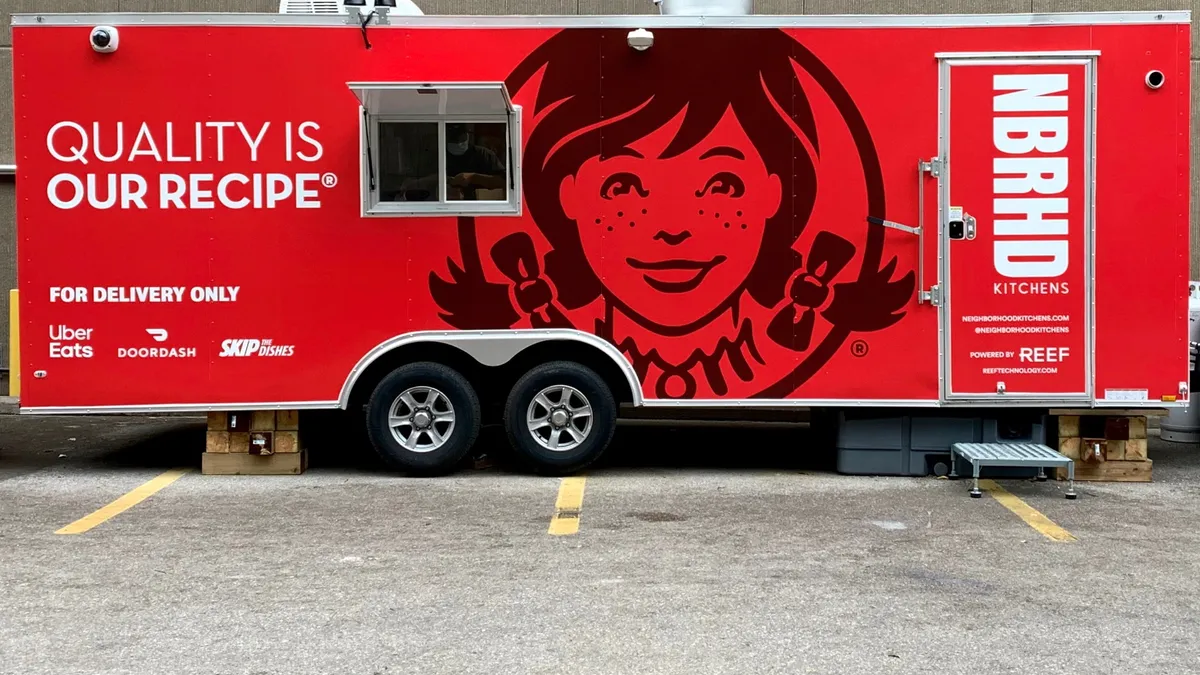Dive Brief:
- Reef Technology on Thursday opened a virtual food hall in the Raleigh-Durham International Airport, Alan Philips, Reef’s chief creative officer, said. The unit may be the first in a series of airport ghost kitchen projects for Reef, Philips said. He didn’t disclose which airports Reef is targeting for expansion.
- The food hall, Reef’s first foray into airport foodservice, serves food from nine brands. Customers currently can order food for pickup on their phones or at order kiosks in the airport terminal and collect the order from lockers at the virtual food hall’s storefront. In the future, Reef intends to also offer delivery to gates, Philips said.
- Reef announced its intent to build the food hall at the Raleigh-Durham airport last year, as the company looked to hotels, airports and stadiums as markets that could supplement its ghost kitchen business.
Dive Insight:
The food hall, which had a soft launch serving food from a handful of brands just after July 4, will be ready to begin gate delivery within weeks, Philips estimates. Customers will specify their gate numbers in their order, and a runner will bring meals from the food hall to the gates.
Reef is partnering with three local brands, Beyu Caffé, Hubb Kitchens and American Meltdown, for the food hall.
“It's not like we're bringing just big enterprise brands, we're bringing a combination of different offerings to make sure we give the consumer and the community what it is that they want most,” Philips said.
Local tie-ups benefit Reef, too. The company teamed up with Jason Johnson, who runs local ghost kitchen Hubb Kitchens, to create the food hall. Working with Johnson allows Reef’s food hall to participate in the Federal Aviation Administration’s Airport Disadvantaged Business Enterprise Program, which makes it easier for local, disadvantaged businesses to compete for federally funded transportation projects.
“A lot of airports have these [programs] where they essentially level the playing field for bidding contracts on airport concessions,” Mason Harrison, Reef’s director of communications, said.
Philips said multibrand restaurant concepts also insulates airports from risks that come with traditional restaurants. If consumer sentiment changes, an airport restaurant could fail, costing the airport time and money to find a new vendor. But Reef, Philips said, can switch up the brands its serves out of a virtual food hall by retraining workers and changing supply orders rather than outfitting a whole new storefront. The food hall also offers more brand options while operating out of the same amount of space an average airport restaurant uses.



